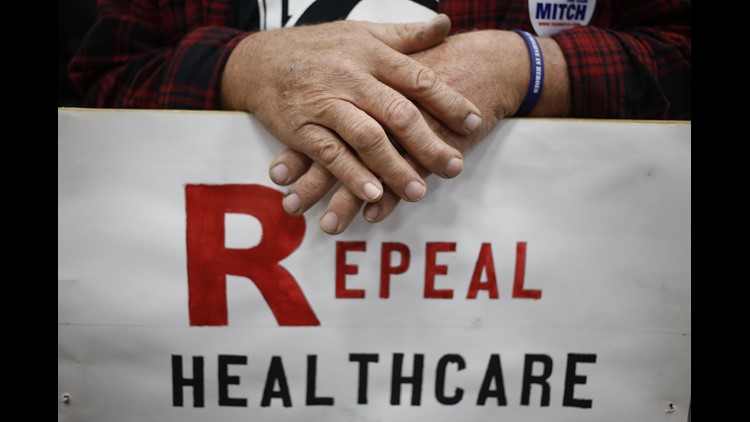A Pennsylvania organization is hopeful that Congressional Republicans will work toward replacing the Affordable Care Act with something a lot less comprehensive than what was passed under the former administration.
President Donald Trump is working on “repealing and replacing” the mandate, which was passed during President Barack Obama’s administration. The Act was an attempt by the government to manage the sales of and execute agreements for health care insurance of individuals, and businesses. However, the cost to launch it and create website portals to purchase on either a state exchange, or the federal exchange, drove up administrative and premium costs, both on a state and federal level.
“From an Americans for Prosperity perspective, we need to get rid of what’s hurting people,” Americans for Prosperity Director Beth Anne Mumford said. “We’re supportive of a repeal. What to do next…we don’t want it replaced with another big government, comprehensive plan. The government cannot control and manage all of the pieces of healthcare. Premiums are going up, and patients have fewer choices, in terms of insurance options. That being said, we think Congress should take on all of these issues as individual issues, for example, preexisting conditions.”
Former Utah governor, and Health and Human Services Secretary under President George W. Bush, Mike Leavitt said, he thinks Republicans have a challenge ahead of them to fix the world’s most costly health care system. He said he predicts the realities of health care economics will constrain the Republican party’s ability to completely abandon the Affordable Care Act.
Mumford said she agrees that it’s costly, especially when personal economics have also been affected. Most Pennsylvanians have shelled out an additional 33 percent in annual premium hikes. She said her organization is supportive of free-market ideas.
“When the government tries to manage an important part of our economy, and an important part of our lives, it doesn’t work. The government is not really equipped to manage these things from above,” Mumford said. “We should not make the same mistake Congress made when they installed the Affordable Care Act.”
She continued, “We’re not looking to support a comprehensive, government controlling plan. We would like to see them get rid of Obamacare, and support free-market solutions, and solutions to provide more choices and more options. We are in a unique position.”
Trump announced the idea of administering state block grants for health care insurance needs, which is something Mumford said she supports because each states’ population needs are different. That is an area of contention in Pennsylvania, where Auditor General Eugene DePasquale has put forth his concerns that Medicaid recipients will not receive enough coverage under plans that potentially scales back how much states receive in matched federal funding.
DePasquale has explained he thinks more than 675,000, mostly rural, Pennsylvanians could be at risk. He’s also emphasized that receiving a reduced Medicaid allocation would directly affect the state’s budget.
While expressing reservations about the Affordable Care Act, Leavitt said the law brought needed reforms to a sclerotic system. He praised a number of its features, including the cost saving shift from fee-for-service to value-driven medicine. He suggested Republicans would be wise to acknowledge good ideas where they exist.
“We don’t think of the ACA having anything that’s bipartisan, but the reality is (health care) exchanges were an idea that had been to a large extent thought of as a Republican idea,” Leavitt said. “The whole idea of value payment was not new; it was something that we had been working hard on.”
“There’s no place on the economic leaderboard for a country that spends 25% of its Gross Domestic Product on health care,” Leavitt said bluntly. “We have to fix this.”



